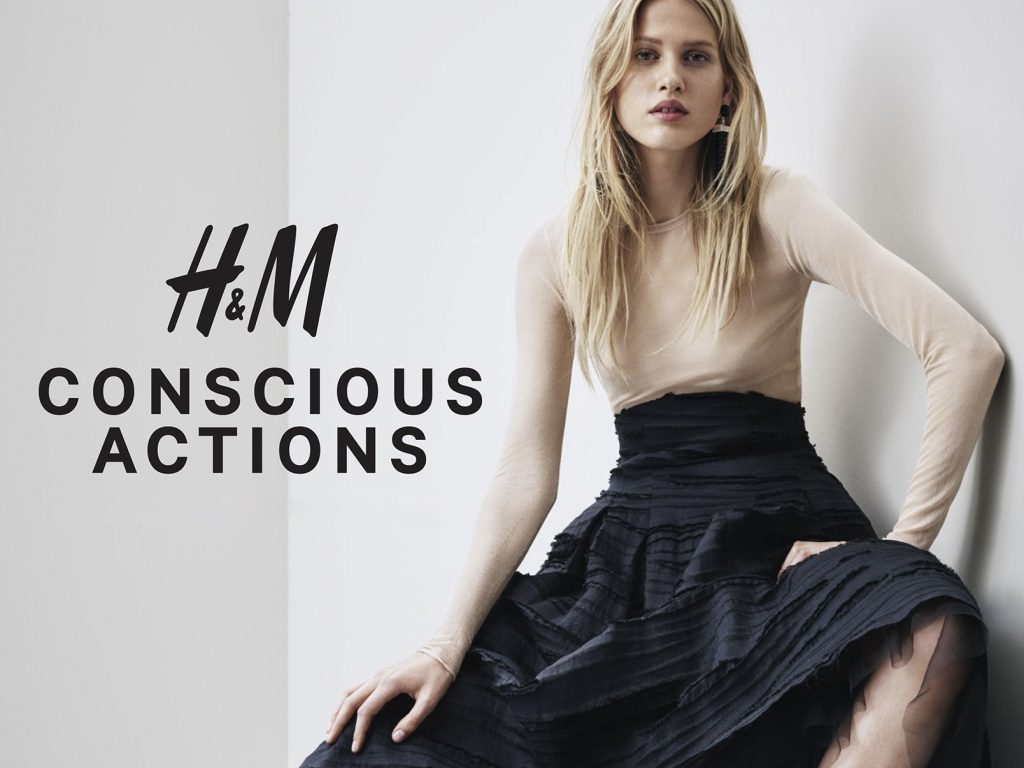On the heels of H&M being sued this summer for allegedly using “falsified information” about its products’ “sustainability” credentials to dupe consumers, plaintiff Chelsea Commodore has amended her complaint against the fast fashion giant. In the amended complaint lodged with a New York federal court on January 6, Commodore reiterates the bulk of the false advertising claims that she set out against H&M, while also adding an array of new allegations to her proposed class action, as well as a new named plaintiff, Rakeedha Scarlett, who also claims that she was damaged by H&M’s “extensive marketing scheme to ‘greenwash’ its products” in order to present them “as environmentally-friendly when they are not.”
According to the newly filed amended complaint, Commodore and Scarlett (collectively, the “plaintiffs”) allege that as part of a larger pattern of targeting the growing segment of eco-conscious consumers who are willing to pay more for “sustainably-made” garments and accessories, H&M has made use of “misleading” environmental scorecards for its products, which it prominently displayed on “green hang tags, in-store signage, and online marketing.” The problem with H&M’s product Sustainability Profiles, the plaintiffs argue, is that they contain “inaccurate and misleading data” and “misrepresent [H&M’s] products as being better for the environment than comparable garments.”
Piggybacking on the example that Commodore cited in her original complaint, in which H&M advertised “a dress [as] made with 20% less water on average,” when an independent investigation revealed that the dress “was actually made with 20% more water,” the plaintiffs assert that such false advertising “is not isolated to water usage alone.” In fact, they contend that there are “similar misrepresentations for each category” of the Sustainability Profile, with H&M “miscod[ing] data to show that products had positive environmental attributes, including that they had ‘less global warming potential,’ ‘less fossil fuels use,’ and ‘less water’ (among others), when numerous products consume ‘more’ of those resources.”
In terms of other new allegations that are set out in the amended complaint, the plaintiffs take issue with H&M’s recycling endeavors, arguing that despite H&M “tout[ing] a recyclability program” in order to “convince consumers that they can purchase products without adding to the significant waste of the fast-fashion industry,” the “vast majority of [H&M’s] products are not recyclable” due to the fibers used in the products. In practice, they claim that “H&M recycles only a small portion of what it collects,” and even if H&M materials were recyclable, Commodore and Scarlett allege that it would take H&M “more than a decade to recycle what it sells in a matter of days.”
As for using recycled materials to create new products, the plaintiffs claim that H&M uses “an insignificant amount of recycled materials in its production.” Specifically, “H&M used only 0.7% recycled materials in 2016, 0.5% recycled materials in 2017, and 1.4% recycled materials in 2018,” per Commodore and Scarlett.
A few other key excerpts …
– Commodore and Scarlett argue that “H&M uses the same harmful practices as the rest of the fast-fashion industry, [but] H&M tries to hide its devastating environmental impact with its deceptive advertising, including its attempt to prove its sustainability bona fides with falsified positive metrics.”
– “H&M actively incentivizes consumers to purchase more and more” of its products, including by way of “a program where consumers can gain ‘Conscious points’ [by buying] its ‘Conscious Choice’ products … and make even more purchases of its products.”
– As for the recycled materials that H&M does use, the plaintiffs that that it “does not employ the environmentally ‘circular’ solutions that it claims to, such as its use of recycled polyester sourced from plastic bottles. When [H&M] utilizes recycled plastic bottles for products, the recyclability of those products is then further limited. Rather than ‘closing the loop,’ this practice lessens any environmental benefit of the products. Whereas bottles could be recycled again for use in the packaging industry, converting them to textile products quickens the path to the landfill, absent viable wide-scale solutions for such products.”
And finally, delving into how “sustainability drives consumer preferences,” Commodore and Scarlett highlight research that “shows that consumers pay a price premium for products marketed as sustainable” and that consumer interest in sustainable products and the accompanying price premium for those products “has grown sizably in recent years.” For example, they point to “one study examining consumer fashion preferences that showed that consumers concerned about sustainability paid 15 percent more for sustainable products.”
H&M “adds a significant upcharge” for its “Conscious” products compared to similar products that do not market a Sustainability Profile or Sustainability Misrepresentation, the plaintiffs assert, arguing that they “could have purchased comparable item[s] offered for less by a competing retailer or by H&M itself.”
With the foregoing in mind, the plaintiffs accuse H&M of engaging in deceptive acts or practices and false advertising in violation of New York General Business Law, as well as breach of express warranty, and are seeking injunctive relief and monetary damages.
The case is Commodore v. H&M Hennes & Mauritz LP, 7:22-cv-06247 (SDNY).











